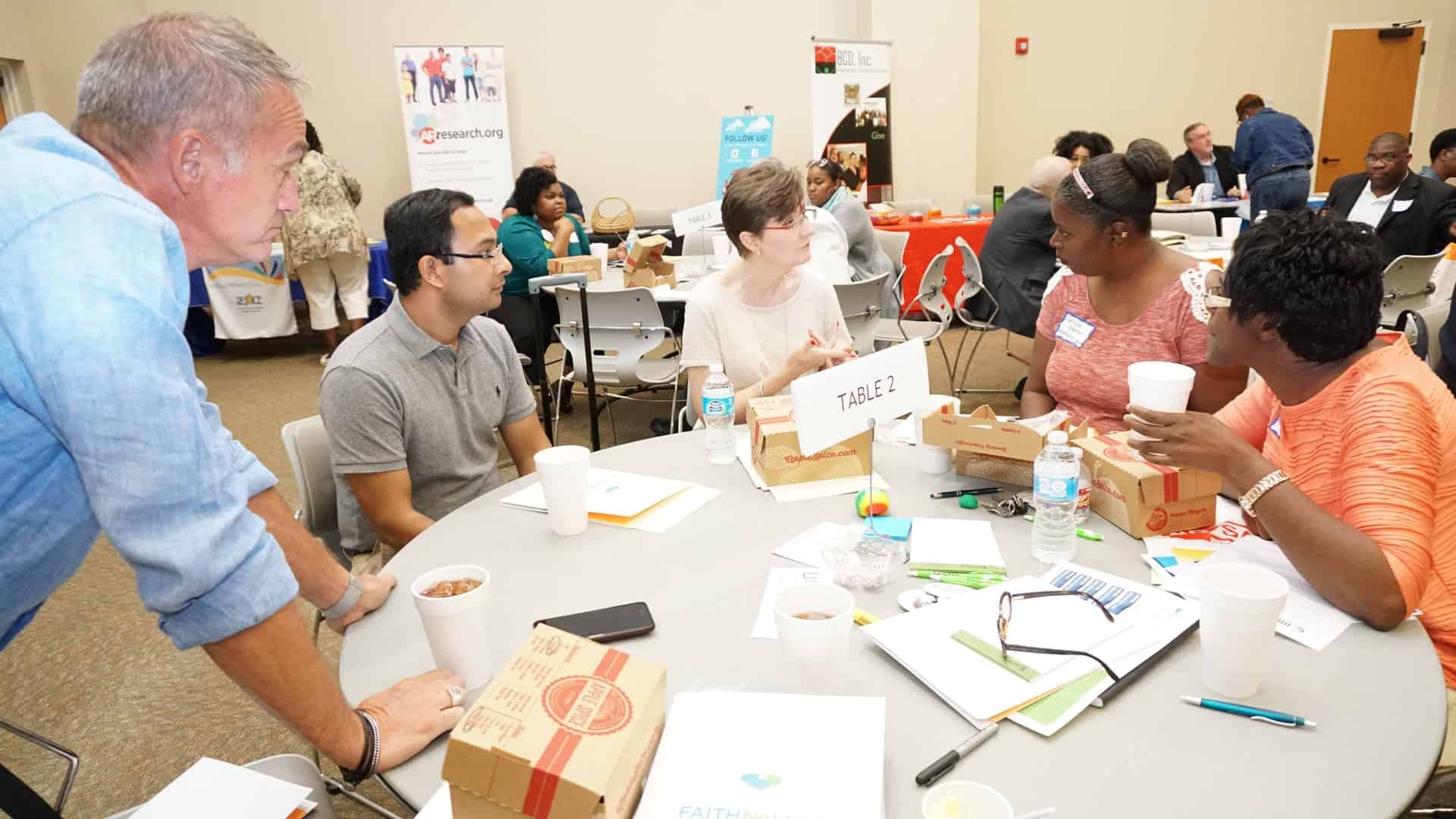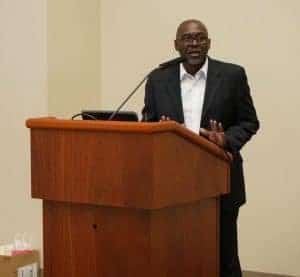Faith, Community Leaders Convene to Address Mental Health Disparities
| Sept. 15, 2017 | Developing an action plan for emotional wellness was the goal for leaders who gathered Sept. 9 at the FAITH Network Summit held at the Centre at University Park in Little Rock.
The FAITH (Faith-Academic Initiatives for Transforming Health) Network is a collaboration between the University of Arkansas for Medical Sciences (UAMS) and faith organizations in Arkansas to provide an infrastructure that supports research with faith-based organizations. They work to deliver health programs and health education to faith communities across the state.

Steve Sullivan (center), FAITH Network Community Advisory Board member, leads the discussion at the FAITH Network Summit
The conference, presented by the FAITH Network, brought together over 150 faith and community leaders, students, educators, social workers, researchers, health care workers and stakeholders to discuss mental health disparities and ways to address them through the faith community.
“The main objective was for the faith community to not only hear about what they can do as an individual, but also as organizations and a community to address mental health,” said Keneshia Bryant-Moore, Ph.D., R.N., associate professor in the UAMS Fay W. Boozman College of Public Health and summit planning committee chairperson.
The theme for the summit was “Emotional Wellness: What can the faith community do?”
During the day, participants developed an action plan for addressing mental health and emotional wellness. In the coming months, summit planning committee members will follow up with attendees to ensure that their plans are being executed.
Speakers talked about tips on supporting others, how to connect the faith community with resources to address mental health, health policy issues in mental health, and what the faith community’s role is in mental health.
“Those who suffer from mental health disorders have to know that we’re here to help them,” said Billy Burris, pastor at St. Peter Missionary Baptist Church in Little Rock and director of Forensic Sciences in the Arkansas Department of Human Services, Division of Behavioral Health Services.
Burris discussed the role the faith community plays in mental health and the importance of making a connection with those with mental illness.
“Are we going to do what I believe is our responsibility?” said Burris. “We must have a plan for dealing with mental illness and know what we’re dealing with in our congregations.”
Sponsored by the FAITH Network and the Baptist Health, this conference is partially funded through the Patient-Centered Outcomes Research Institute (PCORI) Eugene Washington PCORI Engagement Award. It is in collaboration with the Arkansas Foundation for Medical Care, the Arkansas Department of Health, the Arkansas Department of Human Services, and Baptist Health.

